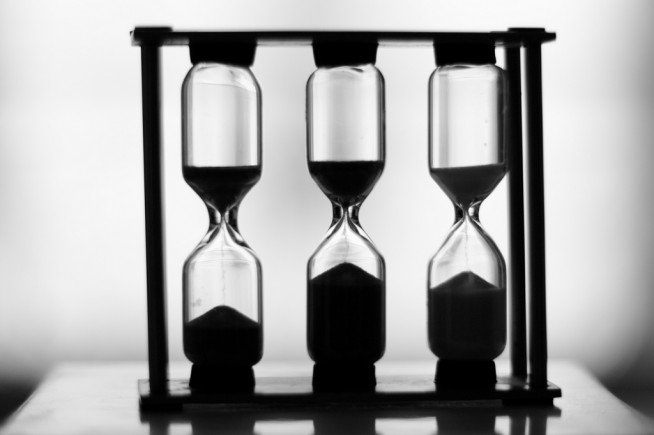I’m working on Before and After, a book about habit-formation, so I constantly ask myself, “What are the issues in my life that bug me, and how can I tackle them through habits?
One problem: nagging tasks. It’s a Secret of Adulthood: Nothing is more exhausting than the task that’s never started. I knew this, but nevertheless I’d accumulated a lengthy list of small, mildly unpleasant tasks that I kept putting off—in many cases, for months. Maybe years.
These tasks weren’t urgent (which is why they didn’t get done), but they weighed on my mind and sapped my energy. As I walked through my apartment, or sat at my desk, the accumulation of these little chores made me feel overwhelmed.
But how could I form a single habit to cover a bunch of non-recurring, highly diverse tasks?
I hit on an idea. Once a week, for one hour, I’d steadily work on these chores. An hour didn’t sound like much time, but it was manageable.
With this hour, I’d tackle only tasks where I had no deadline, no accountability, no pressure—because these were the tasks that weren’t getting addressed. That’s another Secret of Adulthood:
Something that can be done at any time is often done at no time @gretchenrubin
(Click to Tweet!)
But although no one else cared when I replaced my office chair with the broken arm, or donated my daughters’ outgrown clothes to a thrift store, it made a difference to me.
I considered calling this time my “To-Do List Time.” Then I remembered a term from psychology, the “fluency heuristic,” which explains that an idea seems more valuable if it’s easier to say or think. An idea expressed in rhyme seems more convincing, which is why “Haste makes waste” is more compelling than “Hurrying fosters error.” I decided to name my new habit “Power Hour.”
First, I made a list of the tasks to complete. That was easy and almost fun; I get a weird satisfaction from adding items to my to-do list. I didn’t allow myself to add any task that had to get done by a certain time; I couldn’t use Power Hour for planning my daughter’s birthday party or buying airplane tickets (for some reason, I loathe buying airplane tickets), because I knew these tasks would get done. And I couldn’t use Power Hour for recurring tasks, like paying bills or answering emails, because I have different kinds of habits to cover repetitive chores. Power Hour was time to accomplish those one-time tasks that weigh on my mind, but could be—and probably already have been—indefinitely postponed. For instance:
Make a photo album of our summer vacation
Use up store credits
Donate books to Housing Works
Move pretend kitchen
Round up and recycle batteries and devices
It feels so good to cross a nagging task off the list. A friend once told me, “I finally cleared out my fridge, and now I feel like I can switch careers.” I knew exactly what she meant.
Power Hour is enormously satisfying, because I’ve managed to chip away at tasks that were draining me. The joy of Power Hour reminds of another great habit that helps me manage the chaos: my one-minute rule. If I can do something in less than one minute, I don’t let myself procrastinate. I hang up my coat, put newspapers in the recycling, scan and toss a letter. Ever since I wrote about this rule in The Happiness Project, I’ve been amazed by how many people have told me that it has made a huge difference in their lives.
These kinds of habits keep progress steady and manageable.
How about you? Do you have any strategies for staying on top of those little nagging tasks that mount up so quickly?
Gretchen Rubin is the author of the #1 New York Times Bestseller The Happiness Project—an account of the year she spent test-driving the wisdom of the ages, current scientific studies, and lessons from popular culture about how to be happier—and the recently released Happier at Home. On her popular blog, The Happiness Project, she reports on her daily adventures in the pursuit of happiness. For more doses of happiness and other happenings, follow Gretchen on Facebook and Twitter.
Image courtesy of Remi. P.












